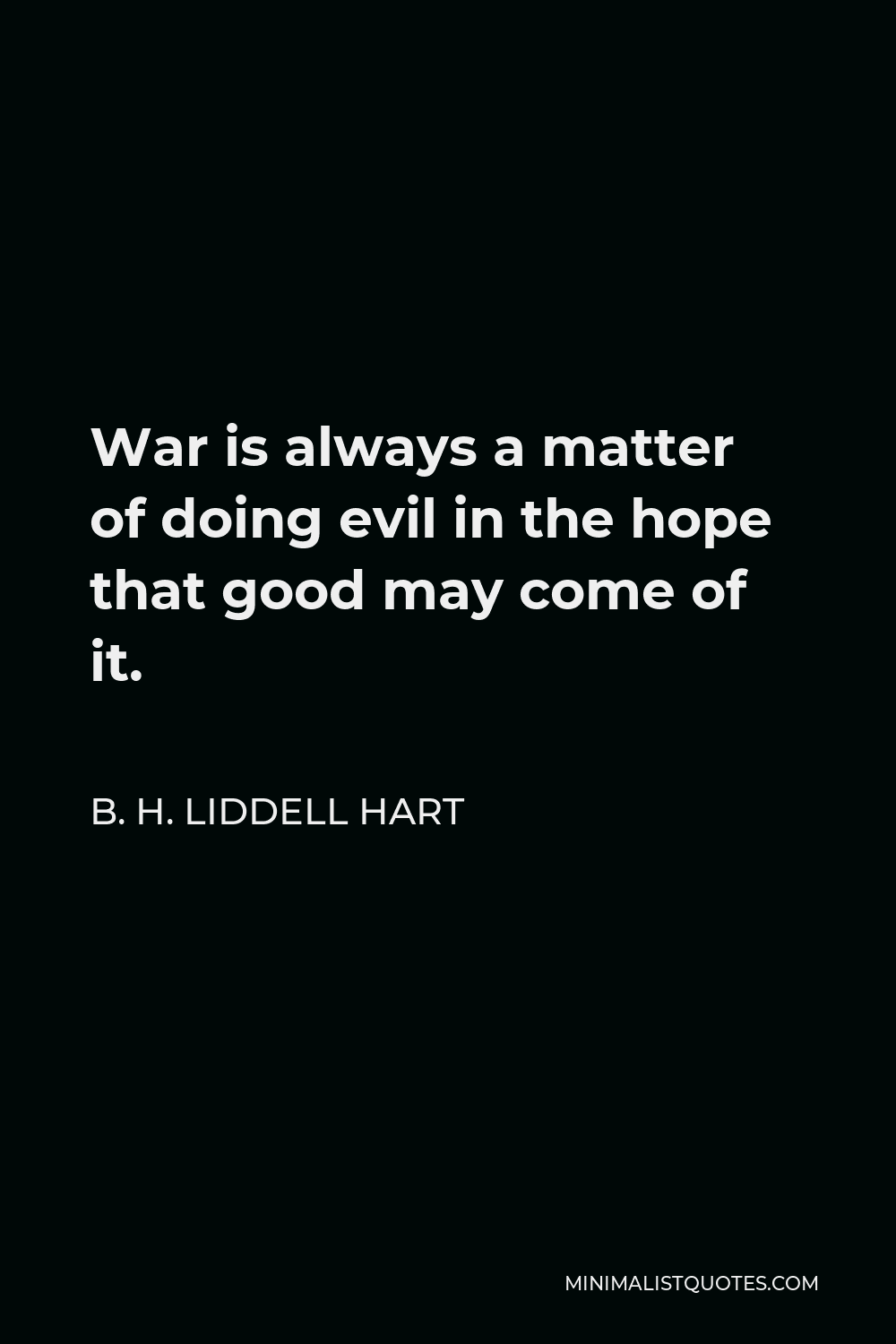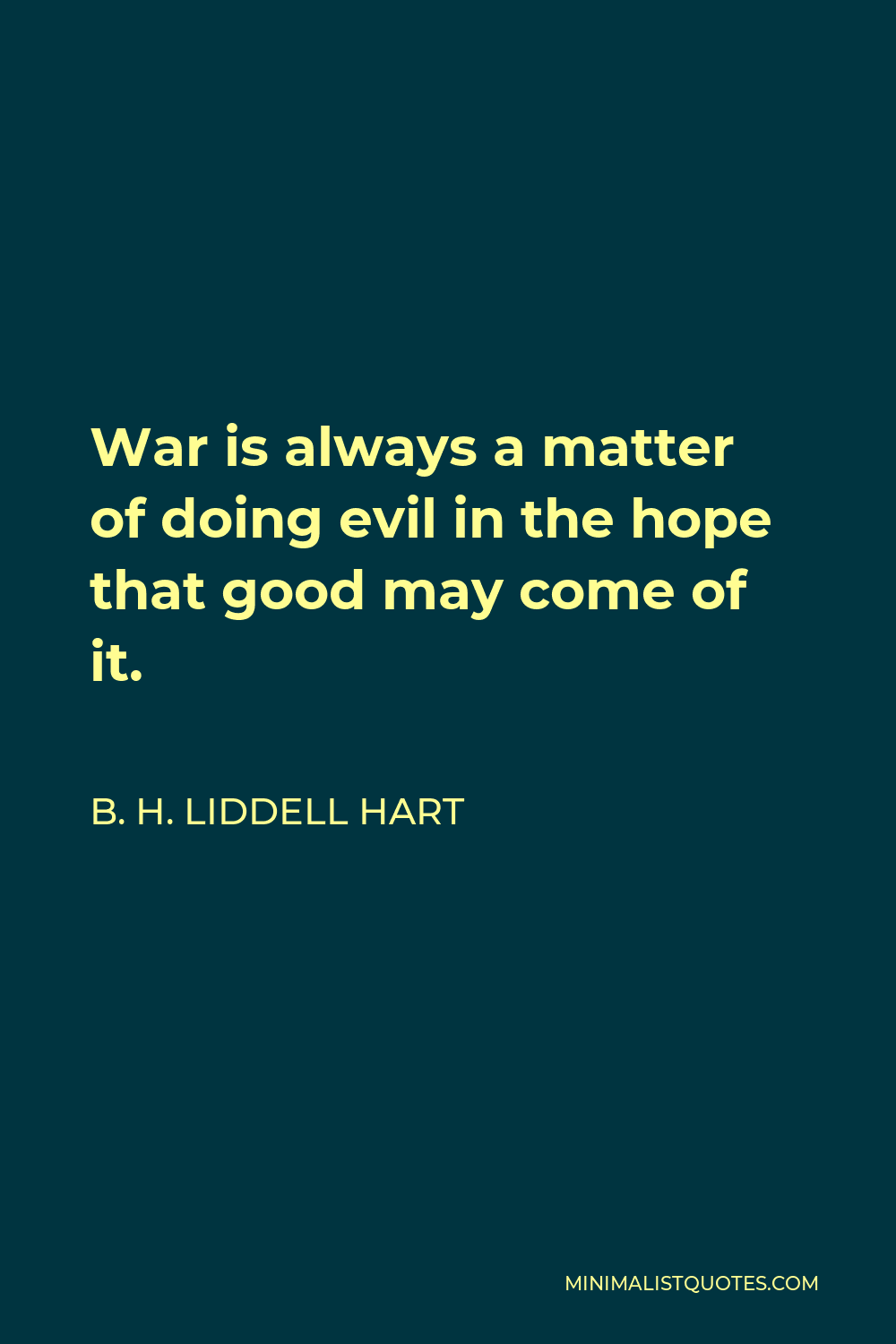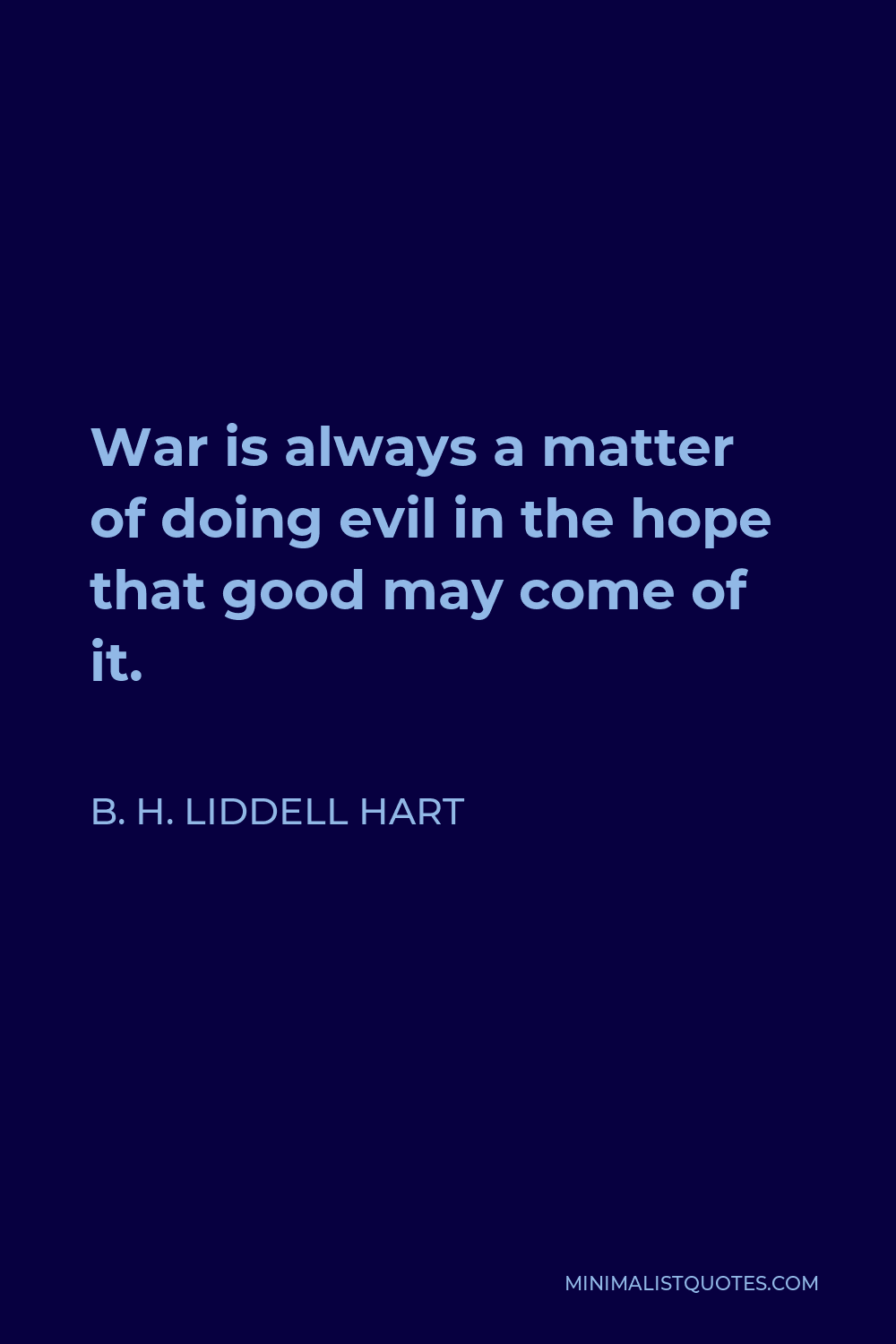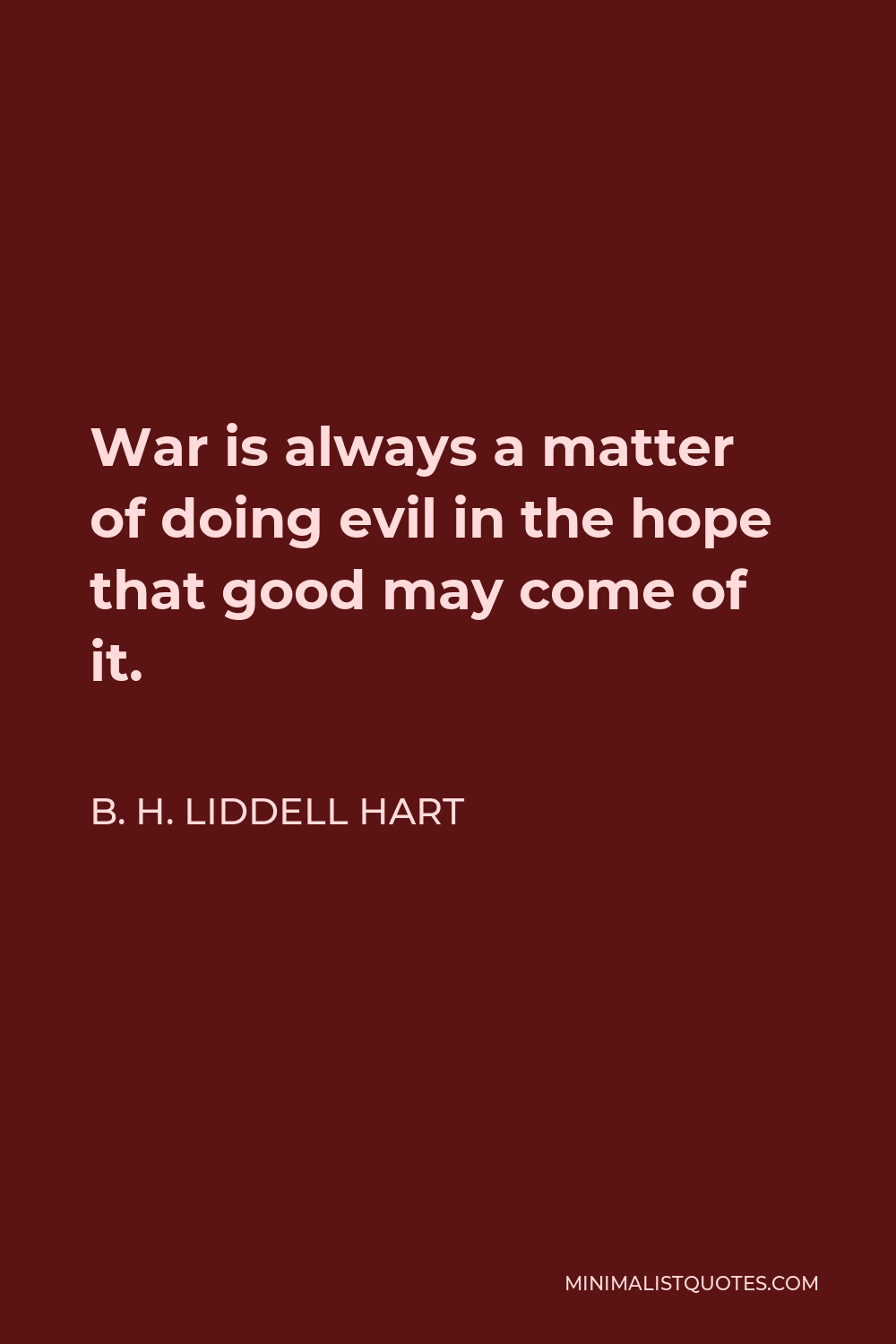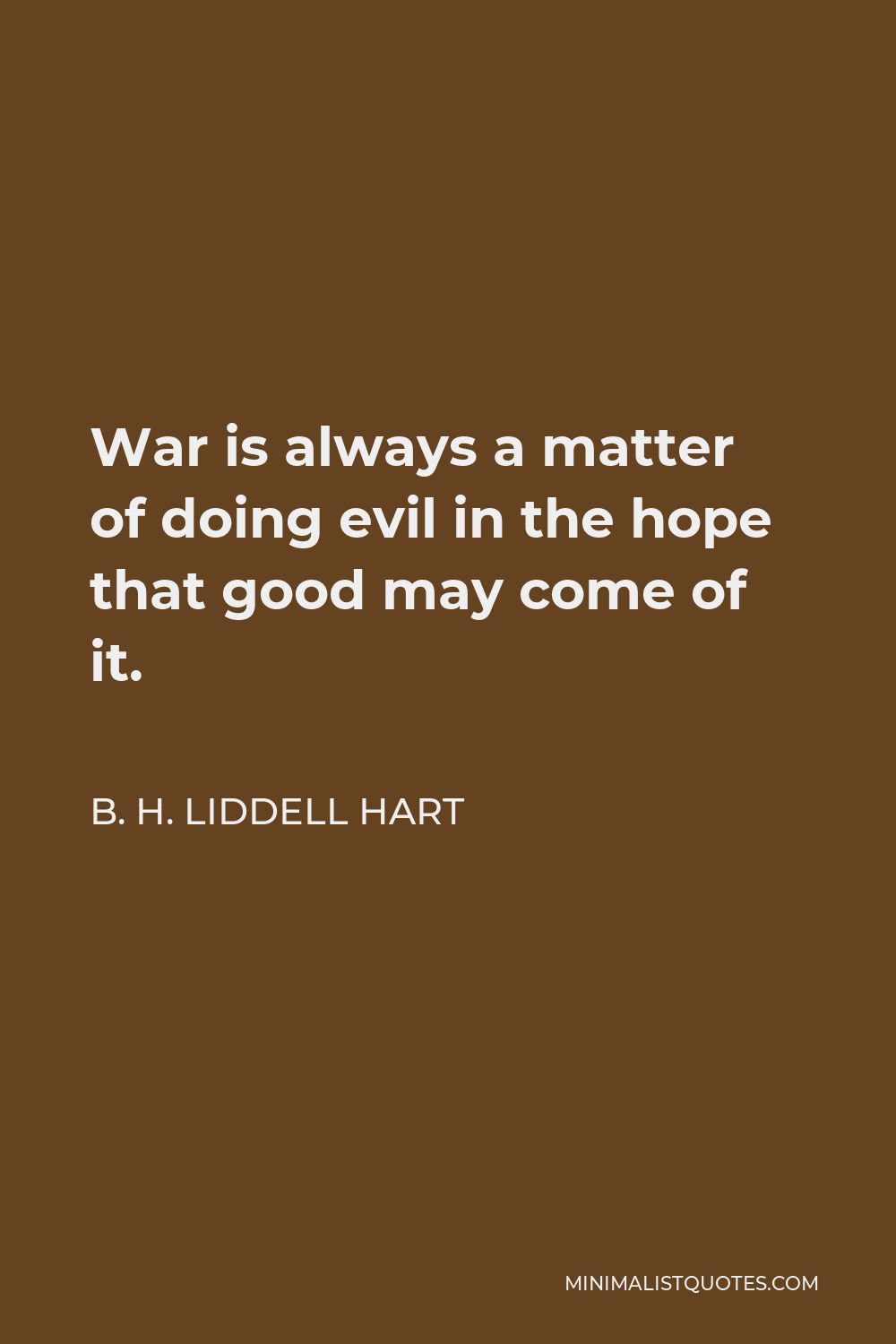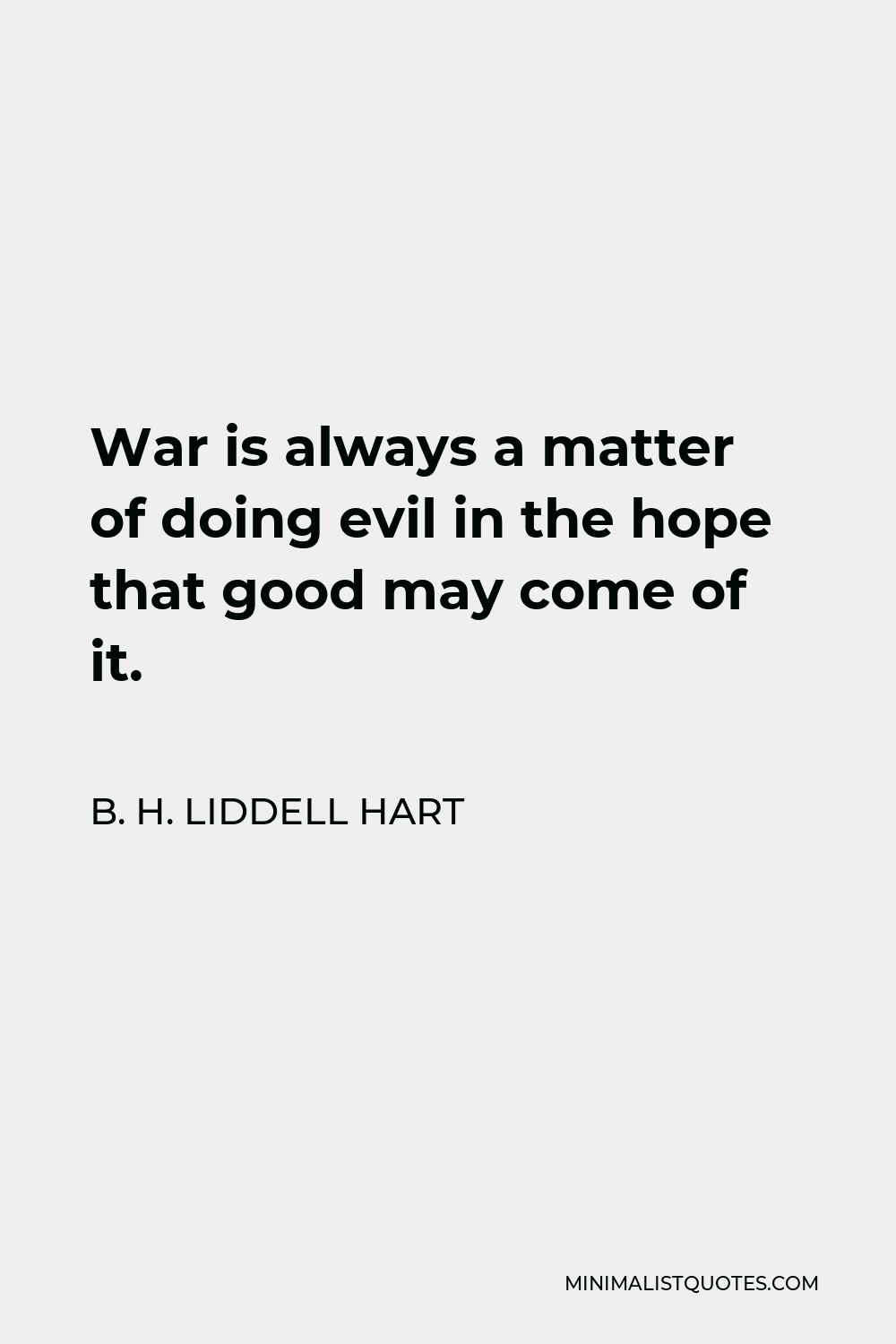Air Power is, above all, a psychological weapon – and only short-sighted soldiers, too battle-minded, underrate the importance of psychological factors in war.
B. H. LIDDELL HARTWar is always a matter of doing evil in the hope that good may come of it.
More B. H. Liddell Hart Quotes
-





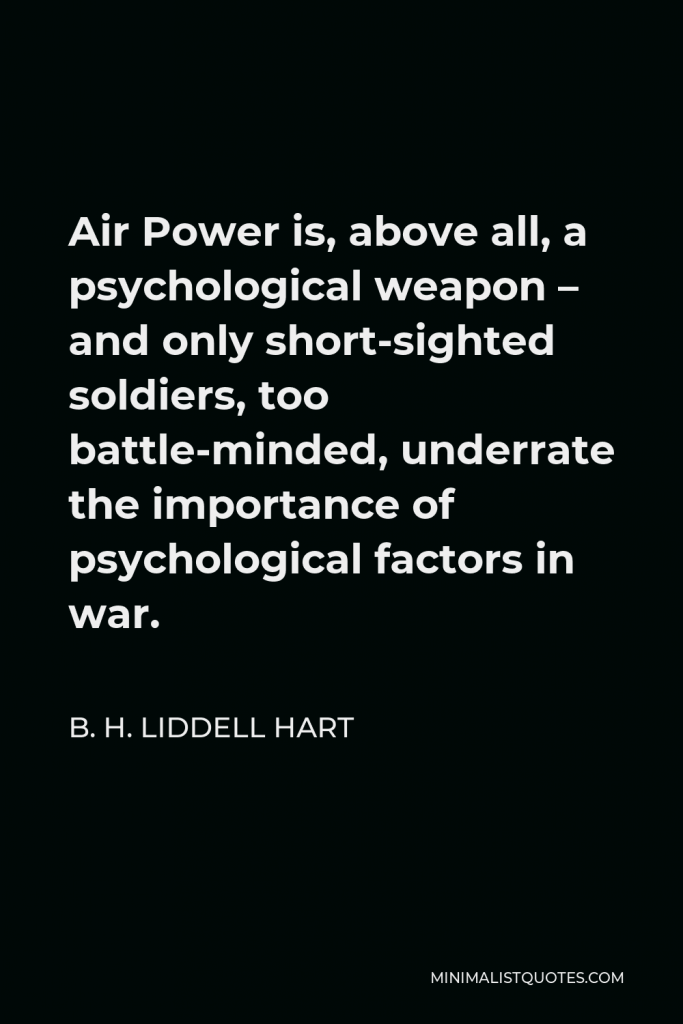

-





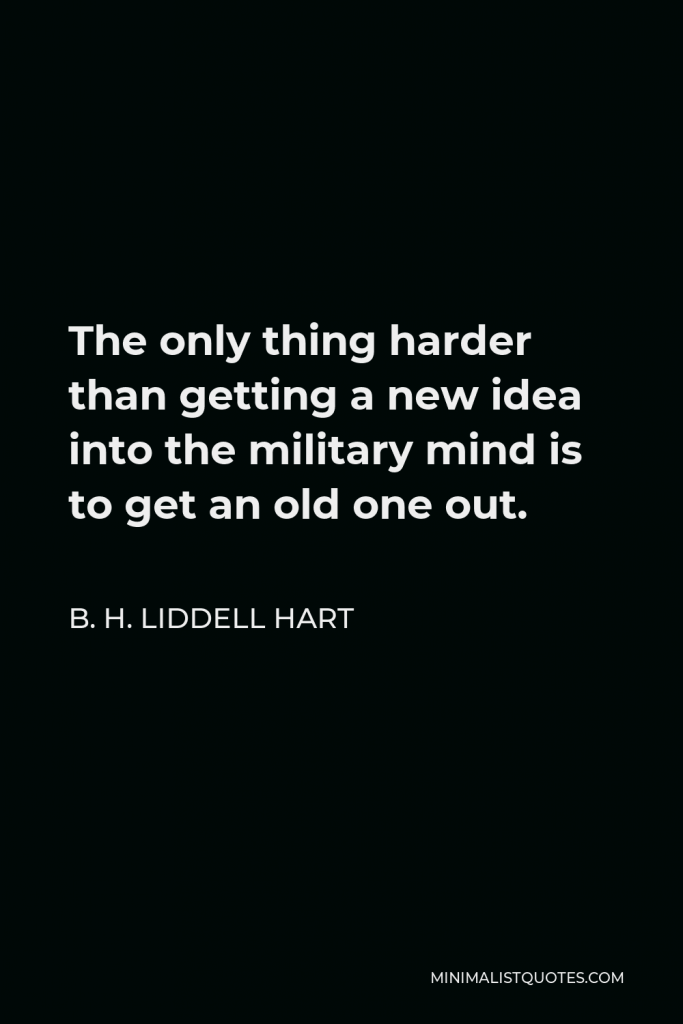

The only thing harder than getting a new idea into the military mind is to get an old one out.
B. H. LIDDELL HART -





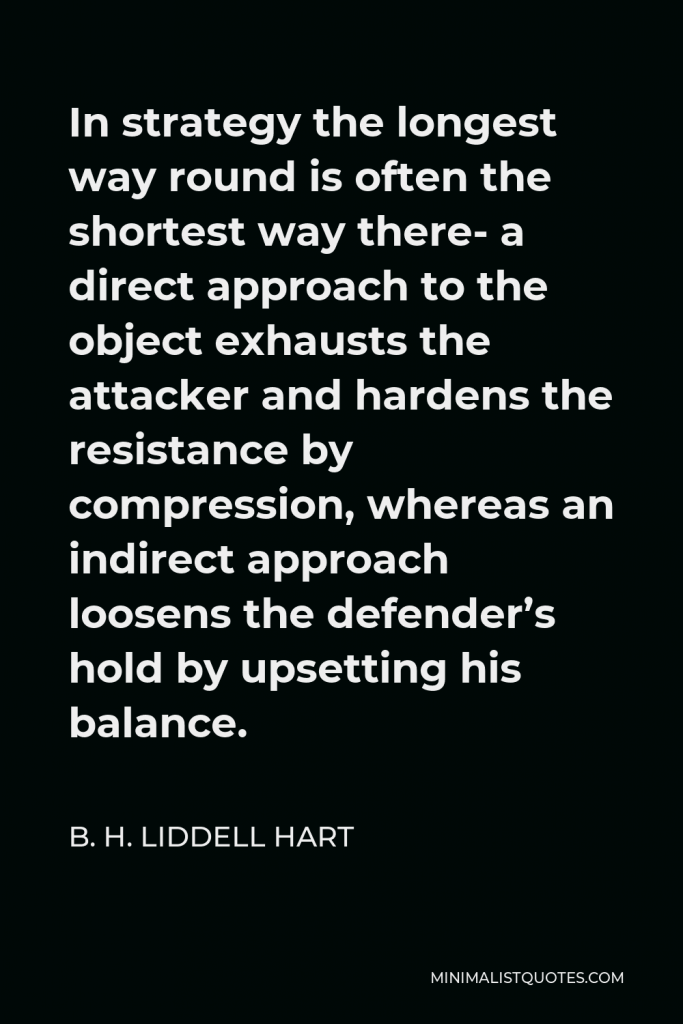

In strategy the longest way round is often the shortest way there- a direct approach to the object exhausts the attacker and hardens the resistance by compression, whereas an indirect approach loosens the defender’s hold by upsetting his balance.
B. H. LIDDELL HART -





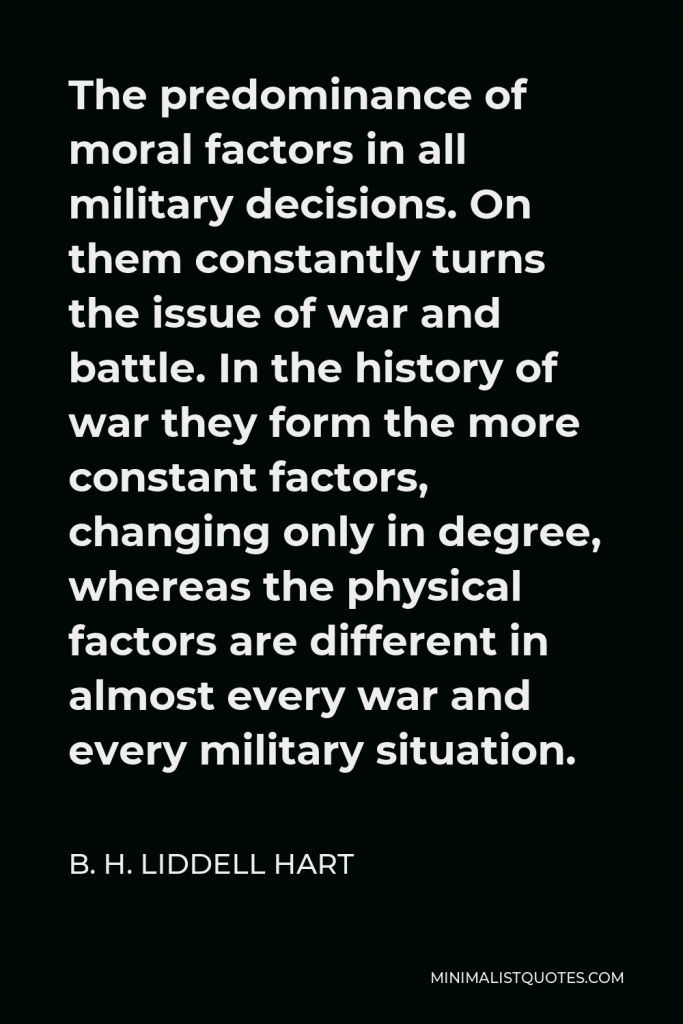

The predominance of moral factors in all military decisions. On them constantly turns the issue of war and battle. In the history of war they form the more constant factors, changing only in degree, whereas the physical factors are different in almost every war and every military situation.
B. H. LIDDELL HART -





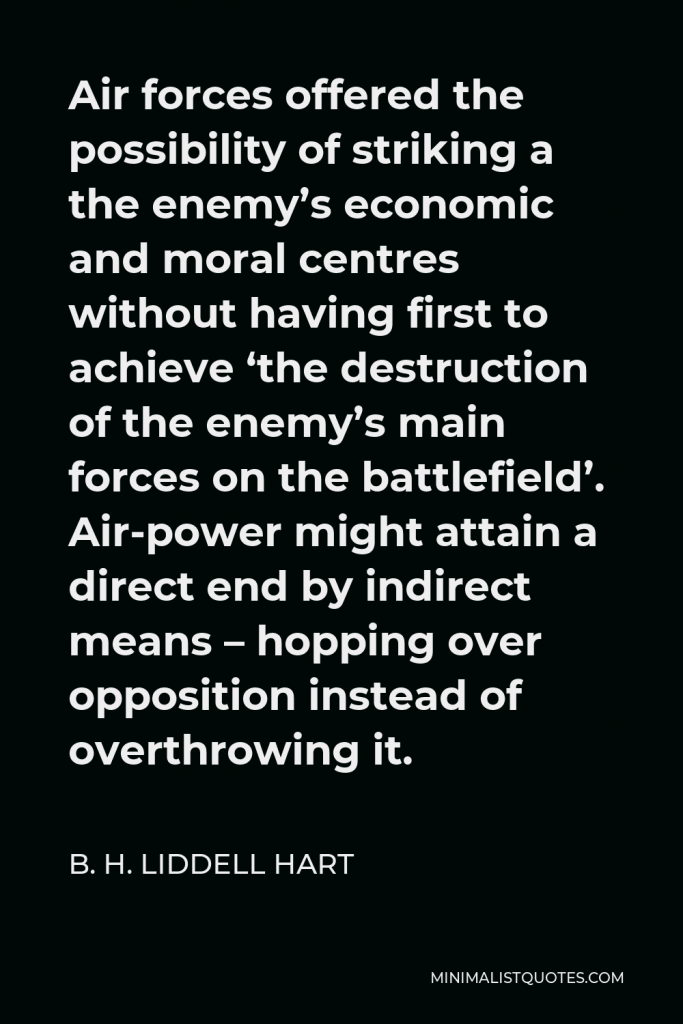

Air forces offered the possibility of striking a the enemy’s economic and moral centres without having first to achieve ‘the destruction of the enemy’s main forces on the battlefield’. Air-power might attain a direct end by indirect means – hopping over opposition instead of overthrowing it.
B. H. LIDDELL HART -





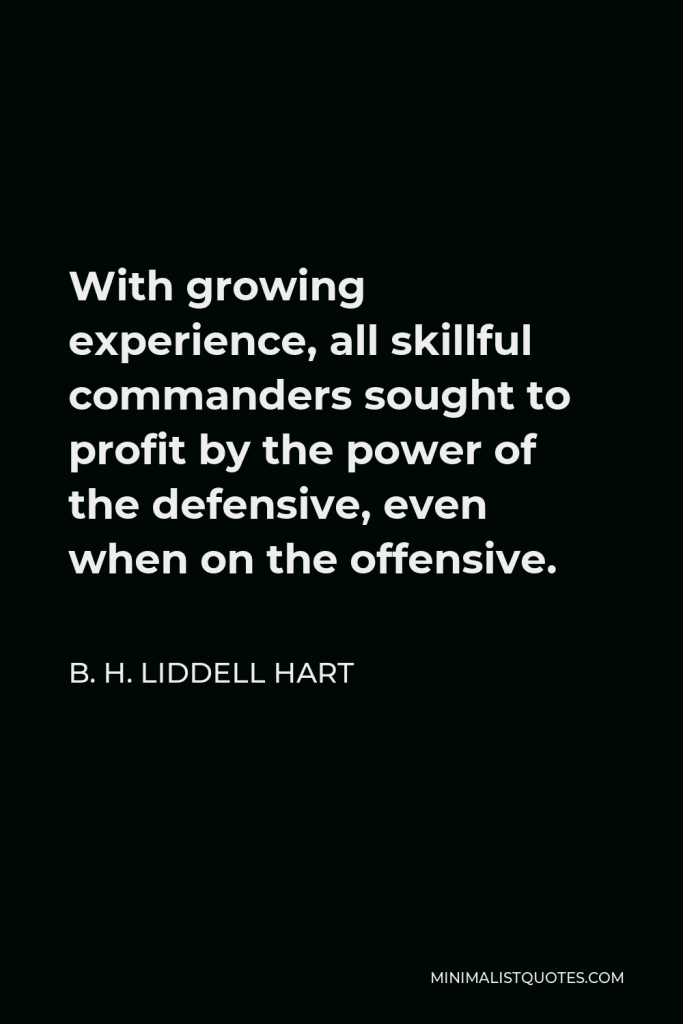

With growing experience, all skillful commanders sought to profit by the power of the defensive, even when on the offensive.
B. H. LIDDELL HART -





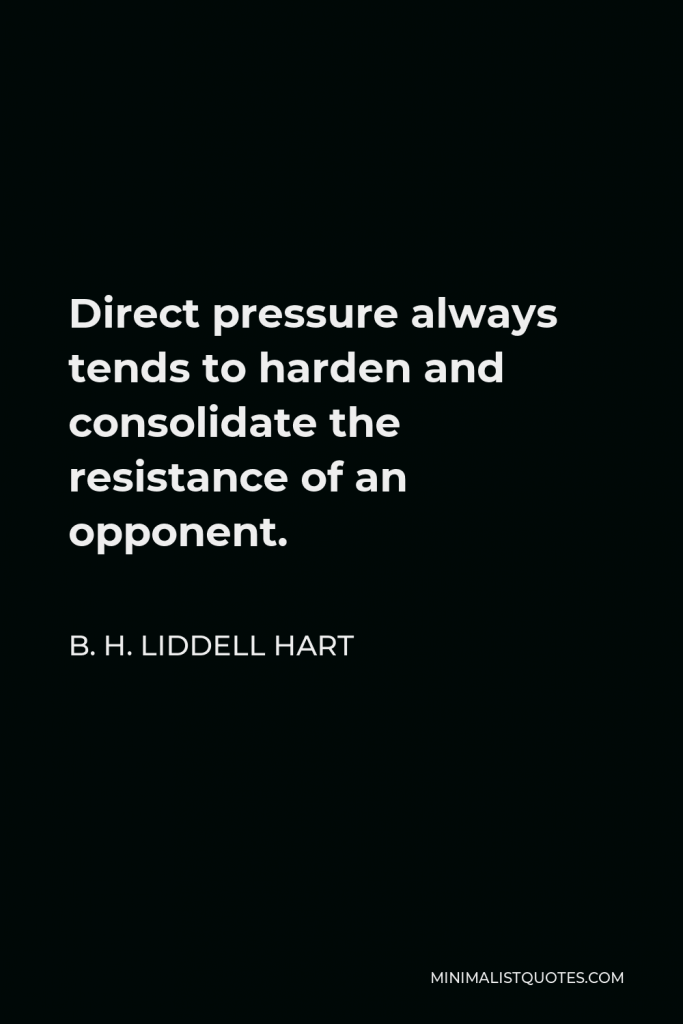

Direct pressure always tends to harden and consolidate the resistance of an opponent.
B. H. LIDDELL HART -





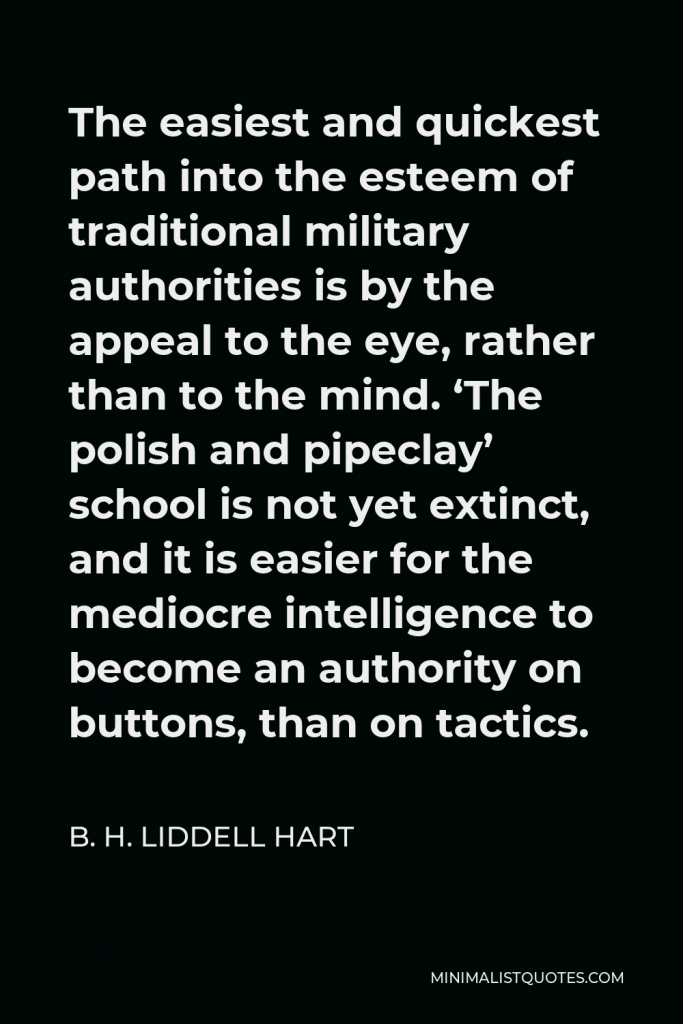

The easiest and quickest path into the esteem of traditional military authorities is by the appeal to the eye, rather than to the mind. ‘The polish and pipeclay’ school is not yet extinct, and it is easier for the mediocre intelligence to become an authority on buttons, than on tactics.
B. H. LIDDELL HART -





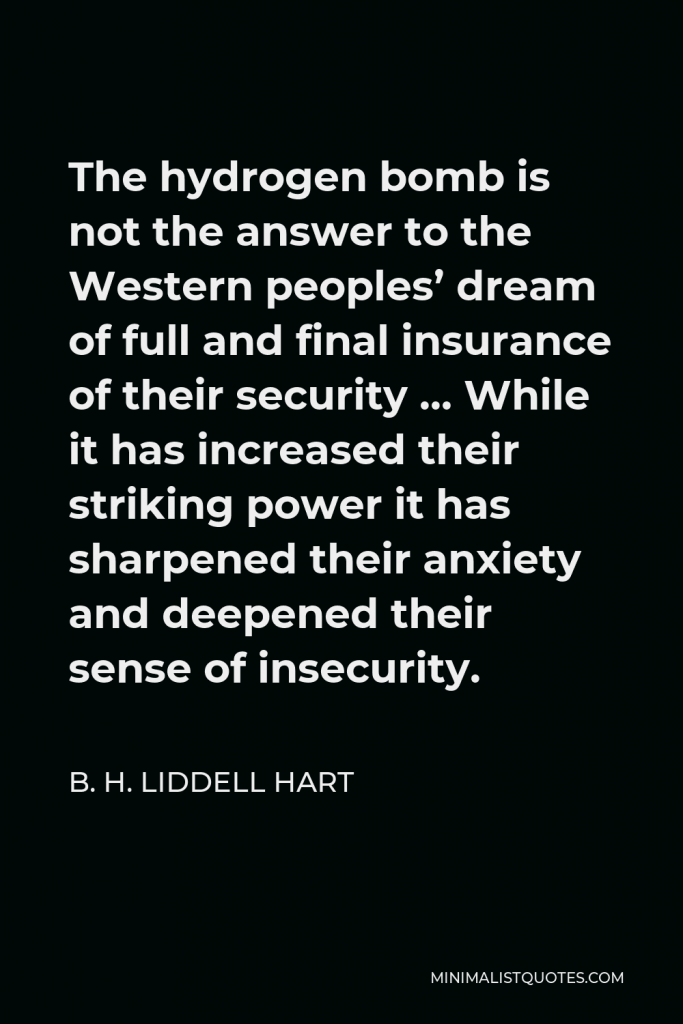

The hydrogen bomb is not the answer to the Western peoples’ dream of full and final insurance of their security … While it has increased their striking power it has sharpened their anxiety and deepened their sense of insecurity.
B. H. LIDDELL HART -





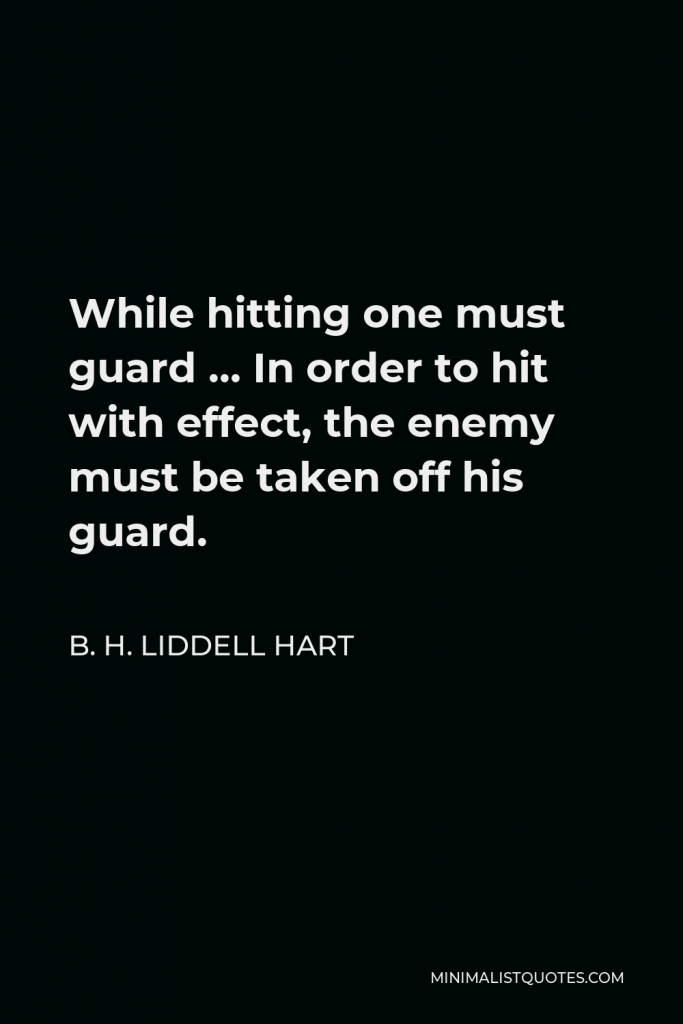

While hitting one must guard … In order to hit with effect, the enemy must be taken off his guard.
B. H. LIDDELL HART -





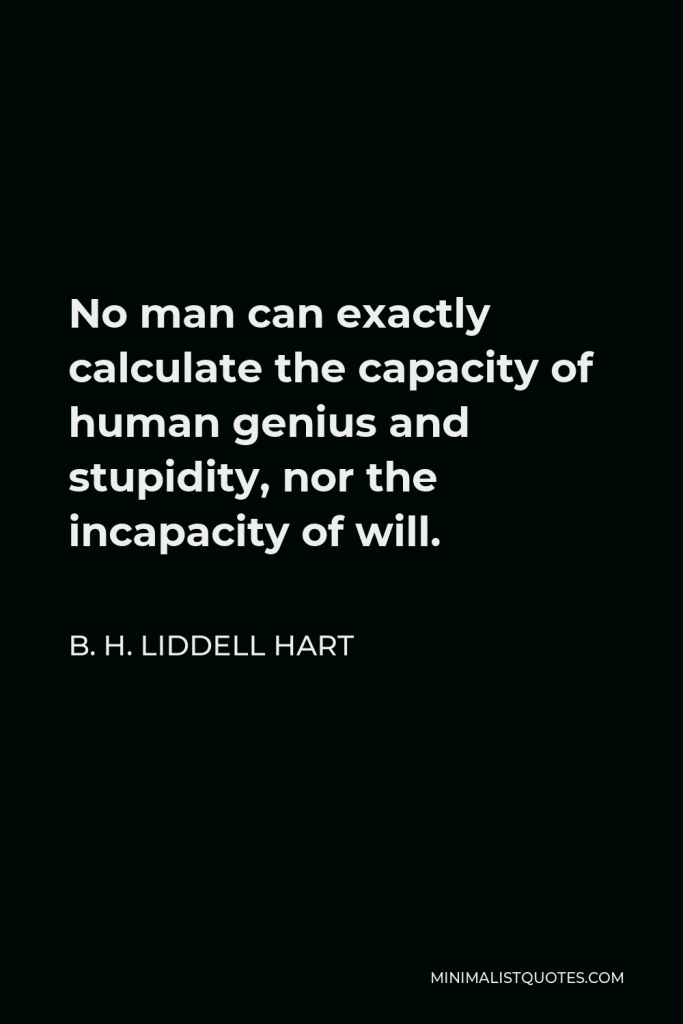

No man can exactly calculate the capacity of human genius and stupidity, nor the incapacity of will.
B. H. LIDDELL HART -





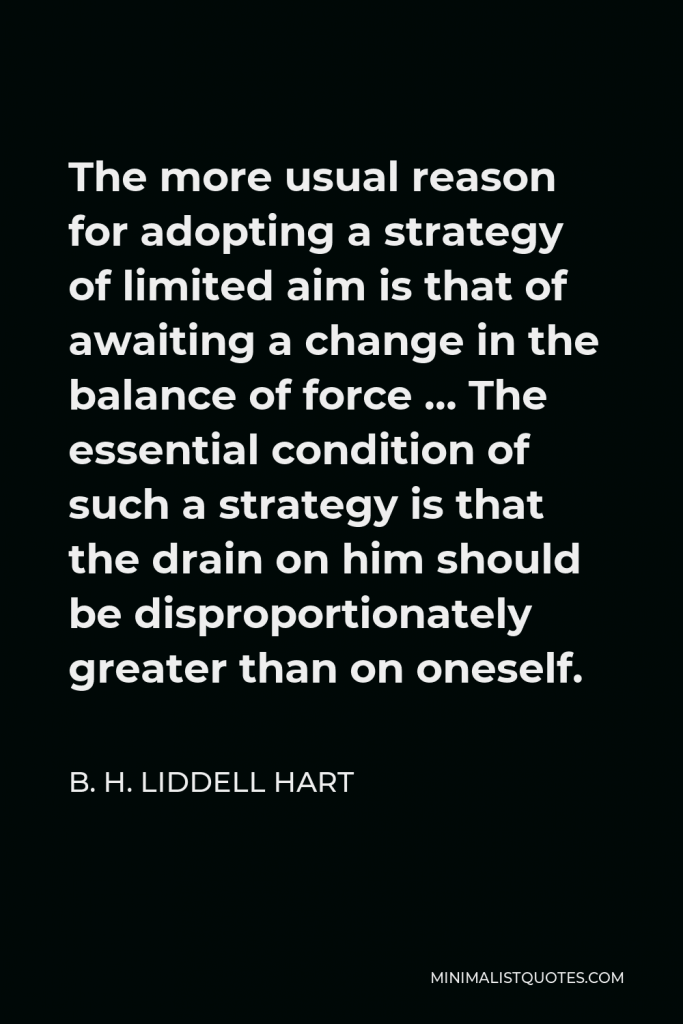

The more usual reason for adopting a strategy of limited aim is that of awaiting a change in the balance of force … The essential condition of such a strategy is that the drain on him should be disproportionately greater than on oneself.
B. H. LIDDELL HART -





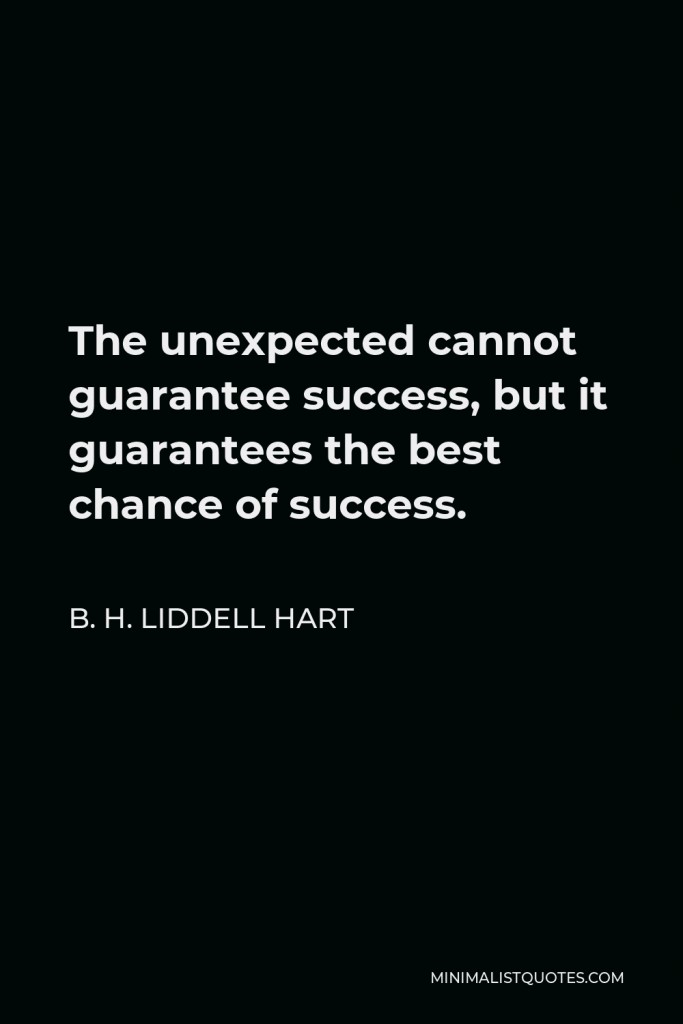

The unexpected cannot guarantee success, but it guarantees the best chance of success.
B. H. LIDDELL HART -





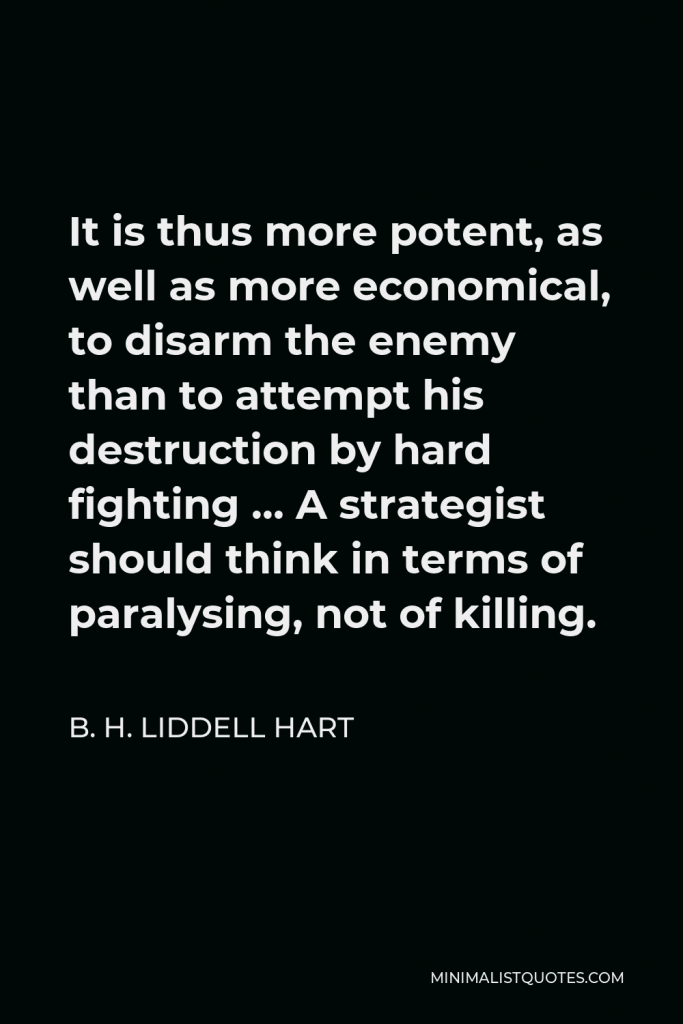

It is thus more potent, as well as more economical, to disarm the enemy than to attempt his destruction by hard fighting … A strategist should think in terms of paralysing, not of killing.
B. H. LIDDELL HART -





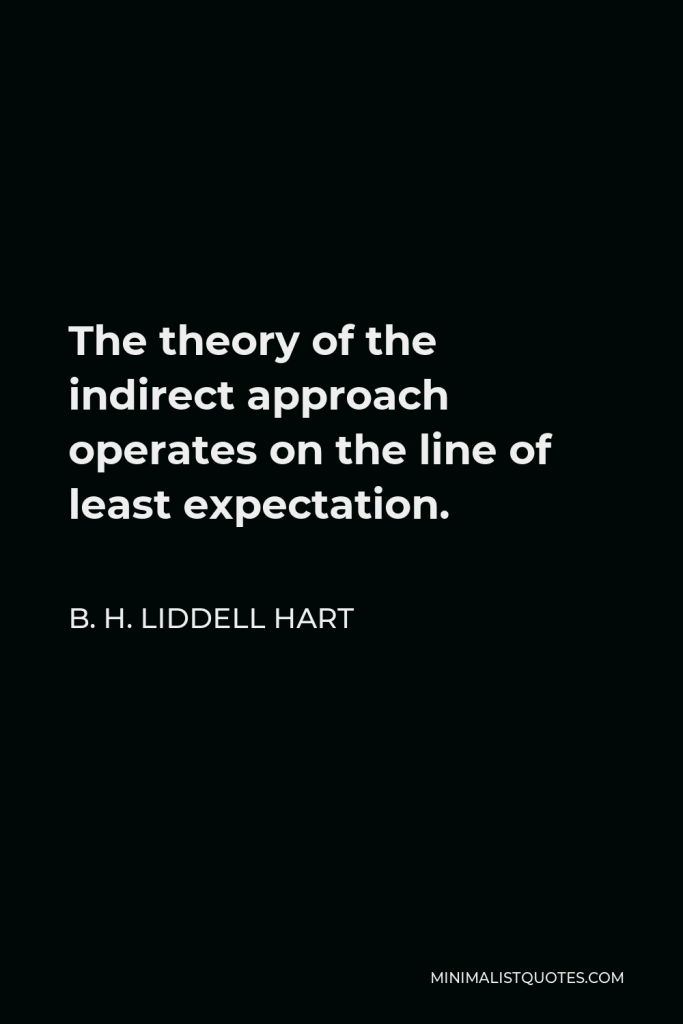

The theory of the indirect approach operates on the line of least expectation.
B. H. LIDDELL HART -





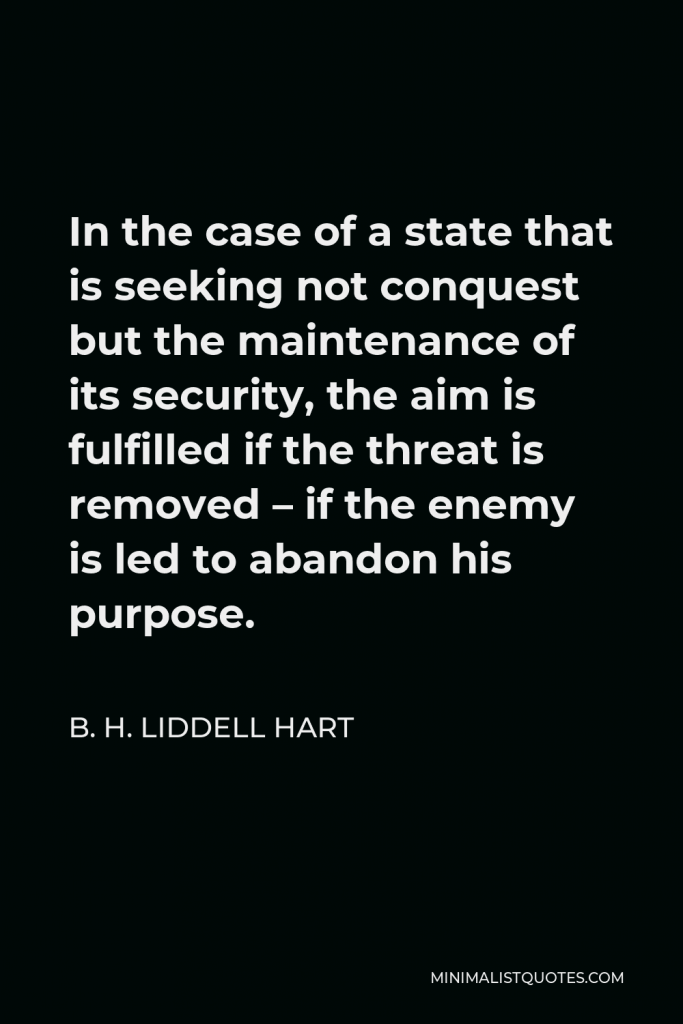

In the case of a state that is seeking not conquest but the maintenance of its security, the aim is fulfilled if the threat is removed – if the enemy is led to abandon his purpose.
B. H. LIDDELL HART
